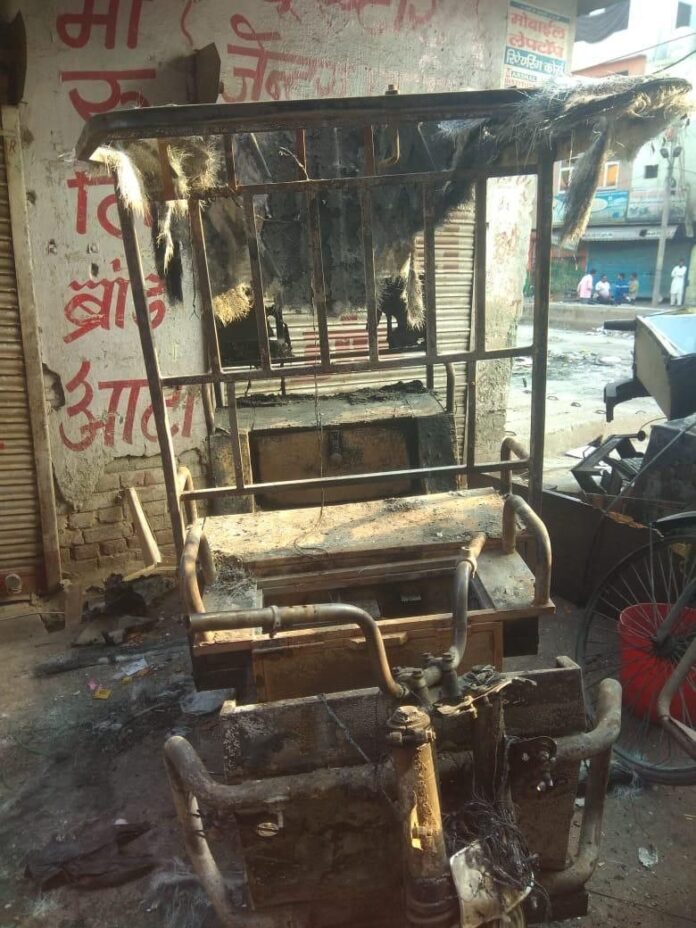
On the fifth anniversary of the 2020 Delhi riots, TwoCircles.net presents a compelling five-part series. This is the first story in that series.
Mohammad Asif Khan/Saima Anjum, TwoCircles.net
New Delhi: Five years after the deadly communal riots in Northeast Delhi wherein 53 people were killed and a hundred over 250 suffered injuries following peaceful protests against discriminatory Citizenship Amendment Act (CAA) and proposed National Register of Citizens (NRC) and National Population Register (NPR), Sattar Khan, 42, an e-rickshaw driver, recalls the harrowing day when mobs burned his house in Jaffrabad and looted and destroyed six years of his family’s savings, including cash, assets, gold and other valuables.
“They took away everything I had saved for my daughter’s wedding. I was left without a home. They burned my rickshaw, which was my only source of income,” he said.
“It has been five years now, but I still have not been able to arrange money for the marriage of my daughter. I received Rs 50,000 from the Delhi government that is not even a quarter of what I lost.”
The Delhi High Court had appointed a commission to examine the claims of riot-affected families. Of the 2,569 registered cases, 1,425 were investigated, while the rest 1,234 remain untouched.
A People’s Tribunal in 2022 accused the then Aam Aadmi Party (AAP) government of failing to provide proper relief to the survivors/victims of the violence.
“While over Rs 1 crore was given as compensation to Ankit Sharma (an Intelligence Bureau staffer), who too lost his life in the riots, only Rs 10 lakh was given for deaths of adult civilians and Rs 5 lakh for children. These arbitrary differences need further investigation,” the report stated.
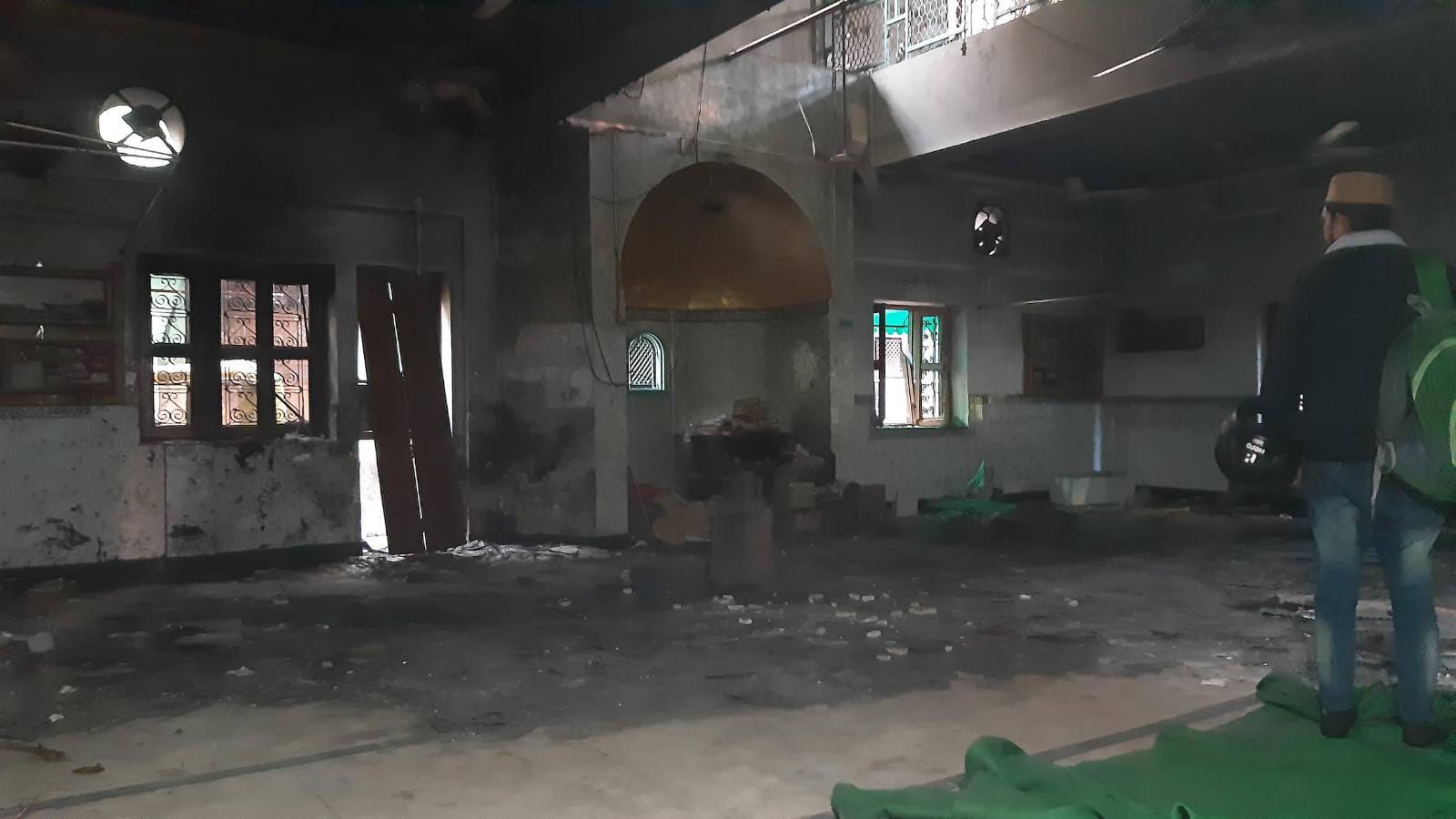
Experts argue that the state government’s compensation plan, both in its design and implementation, was “general and biased”.
Justice Sunil Gaur, head of the northeast Delhi riots commission, said in an interview with Scroll in 2022, “I do feel bad that it is taking time, but all efforts are being made.”While victims claimed that the lengthy compensation process was ineffective, the Delhi government maintained that it began evaluating property damage in the weeks following the riots. More than 2,221 claimants received over Rs 26 crore in compensation under then Chief Minister Arvind Kejriwal’s oversight.
“I received Rs 11,500 as compensation, which I spent on paperwork and court visits,” said Aftab Alam, whose cycle repair shop in Jaffrabad was looted by rioters.
Aftab said that he had no faith left in the judiciary or the system. “I am on my own now. Nothing will bring back my losses. I have sustained myself by borrowing from friends. The 2020 riots and the subsequent pandemic have changed my life forever.”
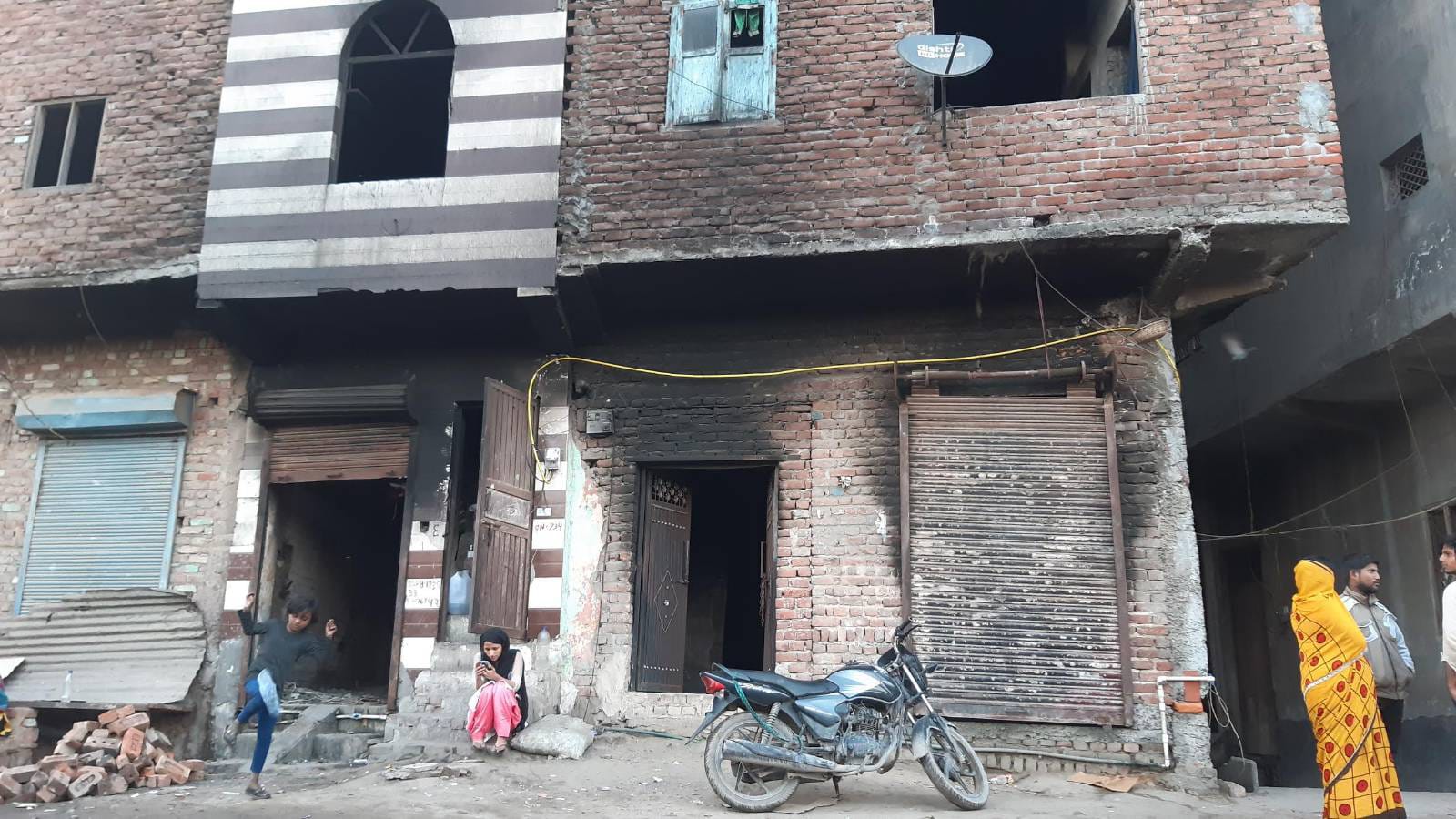
Asif Mujtaba, founder of the Miles2Smile Foundation, which assisted in the relief and rehabilitation of several riot victims, said, “Almost no one has received justice in the aftermath of the riots.”
On February 26, 2020, Muzaffar Alam’s garment shop in Maujpur was set on fire after being looted. He estimates his losses at around Rs 15 lakh.
“With the help of family and friends and the grace of God, I have been able to reopen a shop, but it is not the same. The riots and the pandemic consumed all our savings,” he said.
The loss of property for victims is not just financial but also psychological and emotional. The items they lost held more than just material value. The delay in justice has diminished their hopes of life ever returning to normal.
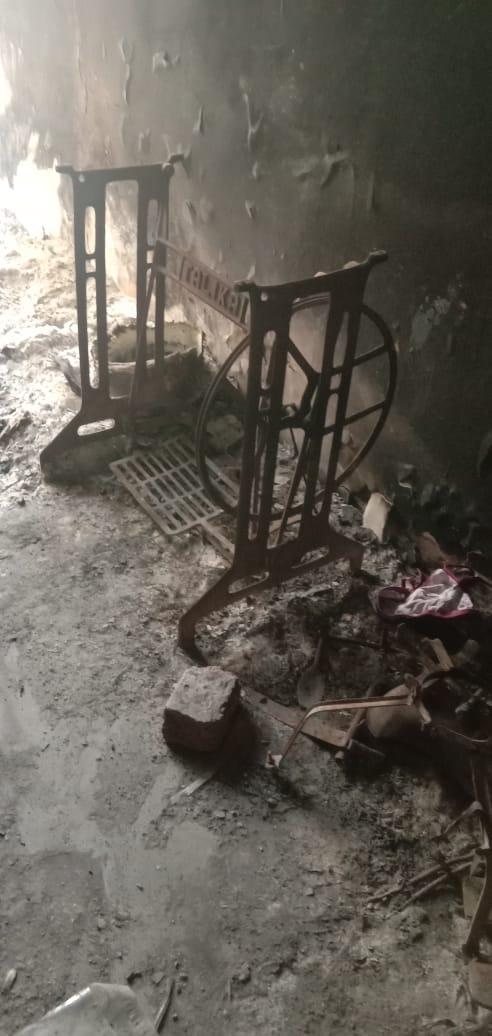
When asked if he holds any contempt for the rioters who burned his shop, Alam said, “What will I gain by holding anger in my heart for people who I do not even know? It was a very bad environment. I hold the administration and the judiciary responsible for my situation because I had hoped for adequate compensation and justice, and they have failed me.”
Meanwhile, the families of accused like Umar Khalid, Sharjeel Imam, Shifa-Ur-Rehman, Gulfishan Fatima, Meeran Haidar and many others remain jailed under stringent Unlawful Activities Prevention Act (UAPA) for allegedly hatching the riots conspiracy and continue to engage in a legal battle – which does not seem to end anytime soon.
‘I Want My Husband Back’
Nooreen Fatima, wife of Shifa-Ur-Rehman, spends her days between court hearings and meeting lawyers. Her husband, a former president of the Alumni Association of Jamia Millia Islamia (AAJMI) who contested the Delhi Assembly elections, 2025, on an AIMIM ticket from Okhla but lost to AAP’s Amanatullah Khan, was also arrested in connection with the larger conspiracy case.
“I have spent five years fighting a battle that never should have started in the first place,” she said. “Shifa was not a conspirator, he was a man who stood against injustice. And for that, he has been locked away.”
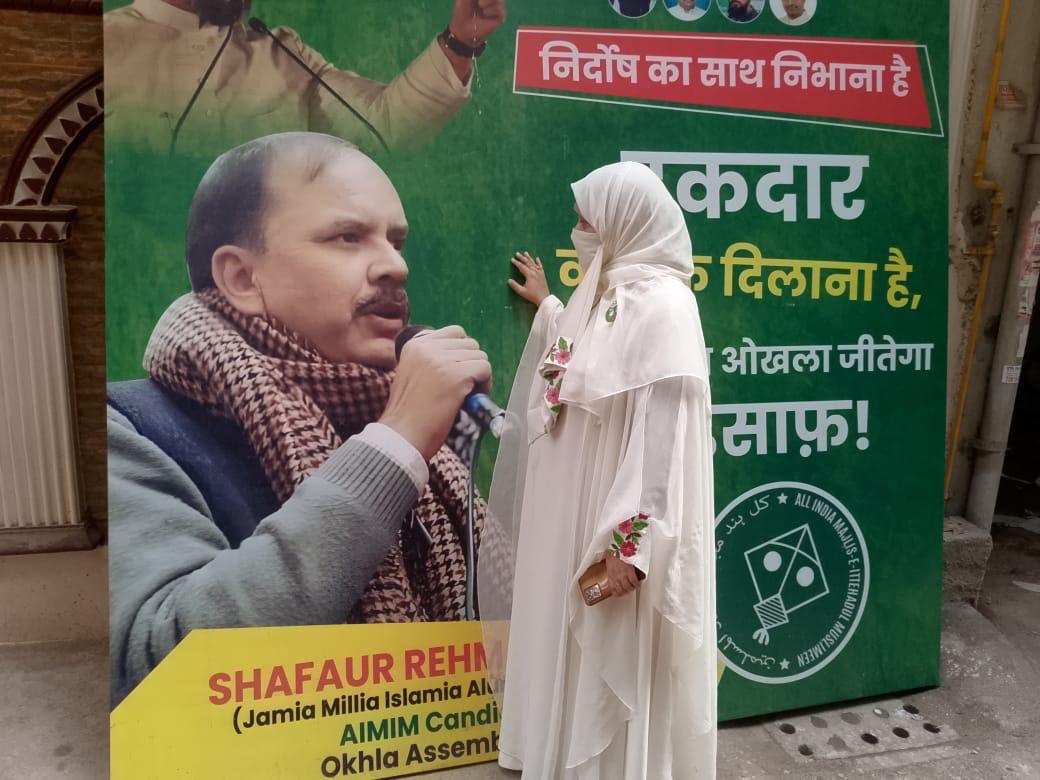
Nooreen recalls how their home has become a place of uncertainty. Their son, who was just a toddler when Rehman was arrested, asks questions she struggles to answer. “He asks when Abbu is coming back. What do I tell him? That speaking up for what is right can cost you your freedom? That is not the lesson we wanted to teach our child.”
The legal battle has drained the family financially. “I had to move back with my parents. I have no savings left. Every month, I arrange money for legal expenses. I do not know how long this will go on.”
Like others, Nooreen believes the charges against her husband are “fabricated”. “If justice existed, my husband would be home today. They wanted to silence voices like his, and they succeeded.”
She holds onto hope, but the years have taken their toll. “The courts keep delaying hearings. The police have no real evidence, but the system is designed to exhaust us. How long can we keep fighting like this?”
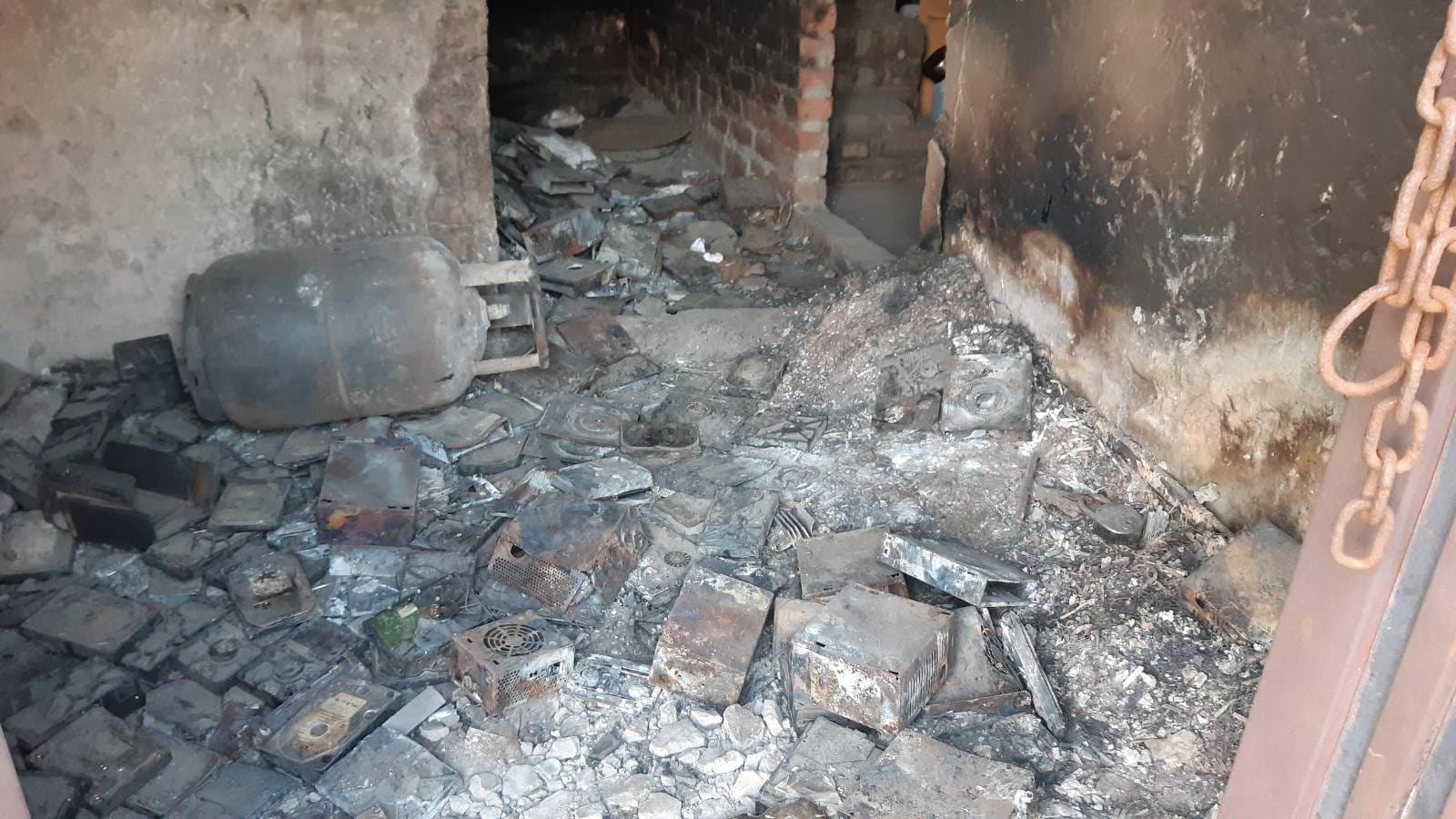
While the focus has largely remained on high-profile arrests, legal experts point out that hundreds of others remain trapped in the judicial process.
Unseen, Invisible Prisoners
Ritesh Dhar Dubey, a defense counsel for one of the accused, highlighted how the vast majority of those arrested remain invisible.
“If 1,300 people were arrested, except for 8-10 well-known names, the rest are completely unheard of. Many of them still languish in jail, with little media coverage or legal assistance,” he said.
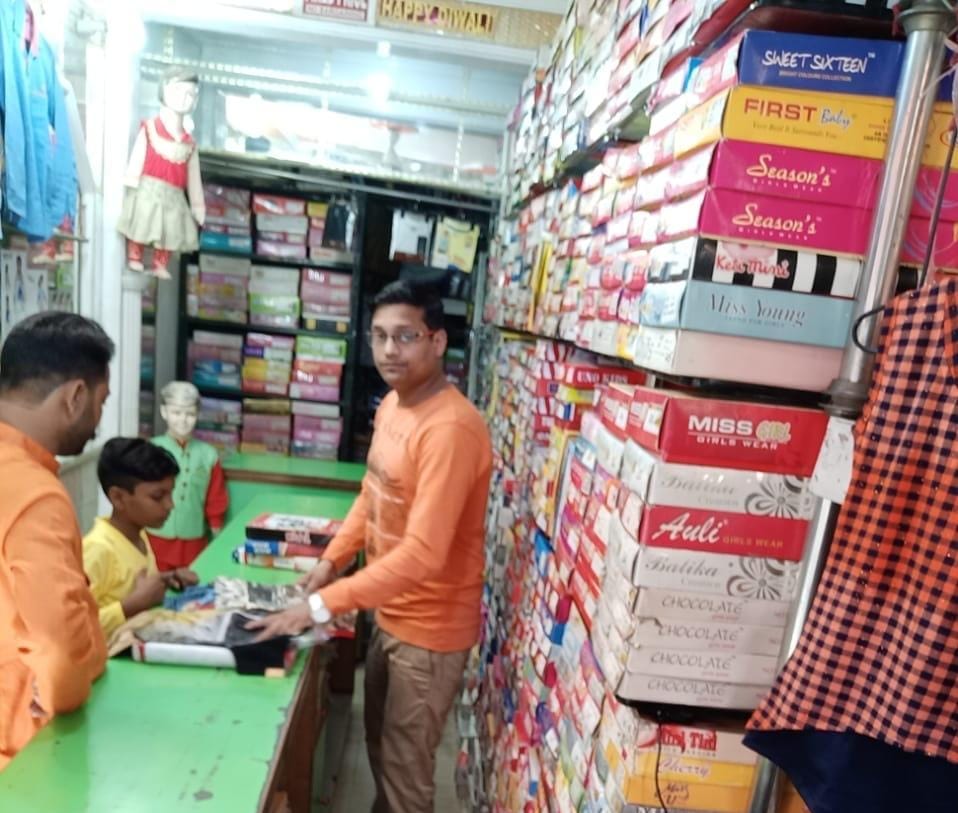
“The problem is not just with activists, many first-time protesters, who had no history of political involvement, were arrested and falsely charged,” he added.
A 2022 Human Rights Watch report found that Indian authorities “wrongfully” prosecuted activists under anti-terror laws while failing to act against ruling Bhartiya Janata Party (BJP) leaders and supporters who allegedly played roles in inciting the violence.
The police investigations, the report claimed, were “biased, delayed and poorly conducted”, with judges calling them “shoddy” and “callous”. The report noted that 18 activists, mostly Muslims, faced “fabricated” charges, while “the real perpetrators remained free”.“The pain that was inflicted on us will never go away. It has left scars, and the scars never heal,” said Alam.

